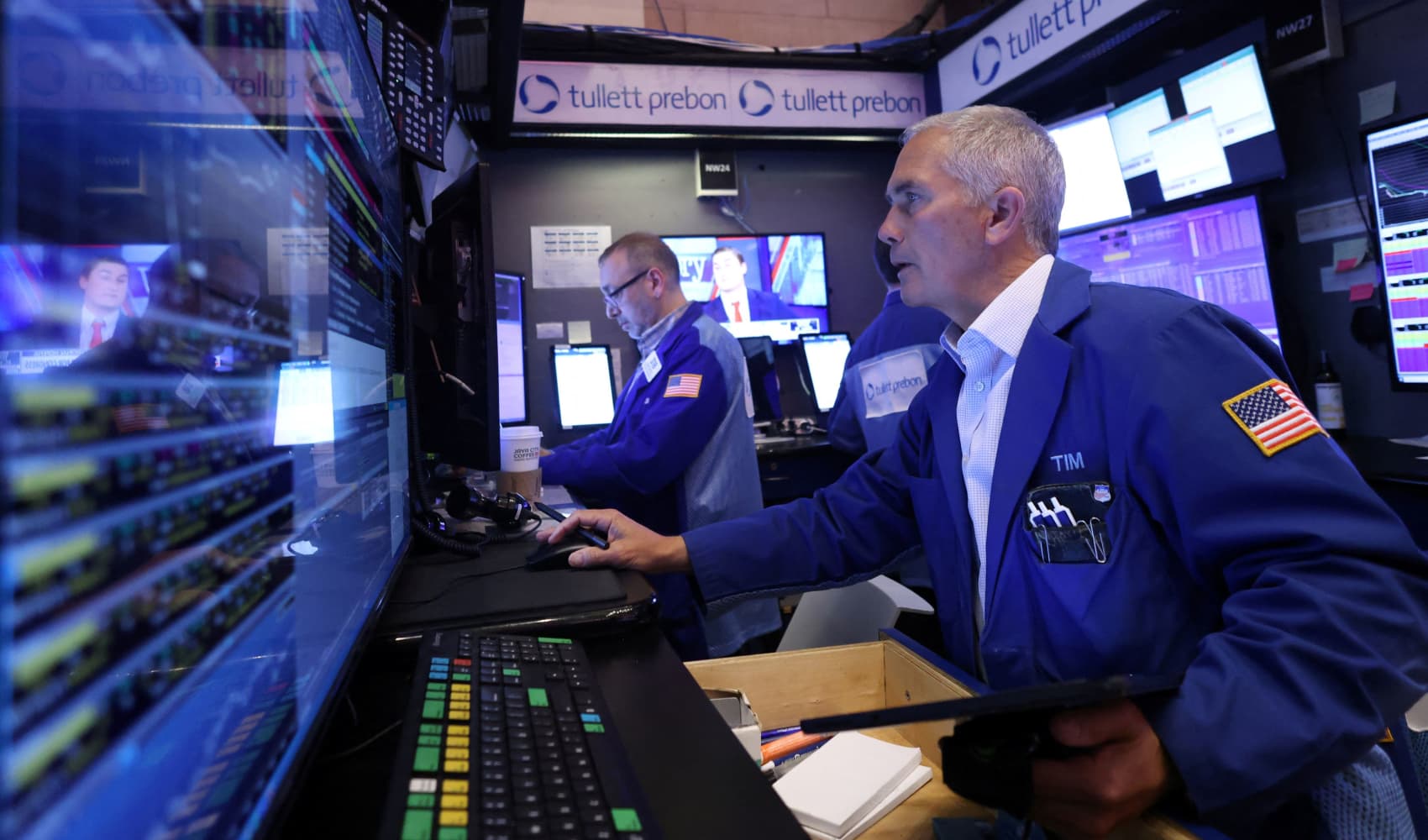
- Clubhouse, which was initially only available on iPhone, allows users to find and listen to conversations between groups of people.
- Launched in March 2020, the app went semi-viral earlier this year before it tumbled dramatically in Apple's App Store rankings.
Clubhouse co-founder Paul Davison is a bundle of energy when he joins the Microsoft Teams call from his home in California.
His high spirits contrast with the popularity of his audio-only chat app. Launched in March 2020, the app went semi-viral earlier this year before it tumbled dramatically in Apple's App Store rankings.
"It's been quite an 18 months," Davison told CNBC.
Feeling out of the loop? We'll catch you up on the Chicago news you need to know. Sign up for the weekly Chicago Catch-Up newsletter here.
Clubhouse, which was initially only available on iPhone, enables users to find and listen to conversations between people. Users join "rooms," where friends and strangers discuss everything from cryptocurrency and politics to diets and video games. Hosts can "pass the mic" to others in the room and listeners can raise their hand when they want to speak.
The revenue-free consumer app was quickly embraced by Silicon Valley types. Its main backer is renowned venture capital firm Andreessen Horowitz, whose co-founder speaks on the platform from time to time.
It was founded in the midst of the coronavirus pandemic as people looked for new ways to occupy themselves, but there's less hype around the app now than there once was.
Money Report
"It feels like it's fading," venture capitalist Hussein Kanji told CNBC in reference to Clubhouse.
Its monthly active users in the U.K., for example, dropped from 550,000 in February to 160,000 in September, according to data from app analysis firm App Annie.
Keeping up with demand
Despite initially being invite-only (invite codes were selling on eBay for $400 at one point), the company struggled to deal with early demand.
Clubhouse said its weekly user base soared to over 10 million people within a year of its launch, and the app has been downloaded over 34 million times, according to app analysis firm Sensortower.
"It just started growing really quickly, much faster than we had ever anticipated or planned for, or hoped for frankly," Davison said.
"I think in December [2020] alone we grew 10x," he added. "It just kept going and going. When all of that was happening, our team was eight people and it really stressed the system."
The former Google intern said he was forced to focus all of his attention on scaling the technical infrastructure and increasing the size of his team as opposed launching new features and refining the app.
"We went from eight people back then to about 85 people today," he said, adding that the headcount will likely grow to between 100 and 200 in the next year.
Elon and Mark show up
Clubhouse's popularity got a boost earlier this year when several big names participated in talks on the platform.
In February, Tesla CEO Elon Musk and Meta CEO Mark Zuckerberg both appeared on Clubhouse within a few days of each other. Musk even asked Russian President Vladimir Putin if he wanted to join him for a conversation on the platform.
The influx of big names saw Clubhouse downloads peak in February, according to App Annie.
But the hype began to tail off around April, which is ironically when the company announced a series C funding round. The round reportedly valued it at $4 billion, but it's unclear what the start-up is worth today.
Asked about the fall in downloads, Davison said, "start-ups typically aren't a perfectly linear path."
In a bid to expand Clubhouse to more people, Davison launched the app on Android in May. He said 10 million new people joined in the six weeks immediately after the Android launch.
In July, as part of an effort to reach even more people, Clubhouse ditched the invite-only rule and opened the app up to everyone.
"We have had a few months this year where we're traffic has really spiked," Davison said, adding that this happened in February, June and July. "The goal is move away from peaks and valleys and towards just a steady path."
While downloads have fallen, Davison said the number of "rooms" being created on the app each day has risen from 300,000 at the start of this summer to around 700,000 by the fall.
Rooms are currently capped at 8,000 listeners for technical reasons, up from 5,000 a few months ago. Davison said he hopes to expand the number to 10,000, 15,000 and beyond in the coming months. To get around the cap, users set up "overflow" rooms and stream sessions on YouTube.
Stiff competition
Several social media heavyweights have launched similar audio-only products after witnessing the app's early success. Twitter now has Spaces, Facebook has Hotline and Spotify has Greenroom. Amazon is also working on a Clubhouse competitor, according to The Verge.
"I'm not at all surprised other platforms are launching audio in the same way they launched photos and then video and other features," Davison said, claiming that the launch of these rival platforms hasn't had a material impact on Clubhouse.
He added: "We believe the company that's going to lead the way in social audio will be fully focused on social audio."
In a bid to separate itself from the competition, Clubhouse launched two new features on Monday. The first, Replay, allows creators to record their "rooms" and share them on their profiles and elsewhere. The second tells creators how many people have joined their room in total as opposed to how many are in the room at any one point in time.
There have been other, perhaps more notable, features rolled out this year. In April, Clubhouse made it possible for users to send money to other people on the platform through a partnership with Stripe.
Davison cited musicians as one beneficiary of this, with some guitarists earning around $200 in 20 minutes. He declined to comment on how much users have sent to each other in total so far.
Clubhouse itself is yet to make any serious money and is currently running purely on an undisclosed amount of investor funding. However, it plans to start charging users for access to certain things in the near future.
"Some of the things that we're excited about are subscriptions for creators, paid events for creators, real in-room tipping for creators, brand partnerships for creators," Davison said. "When I say in the future, I probably mean in the next few months."






